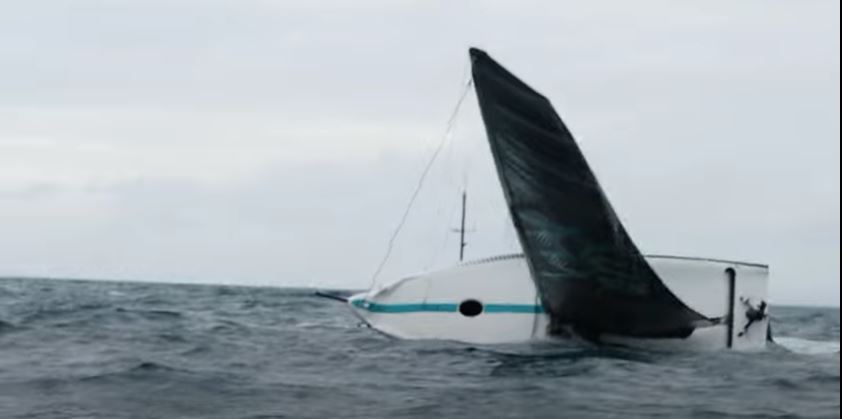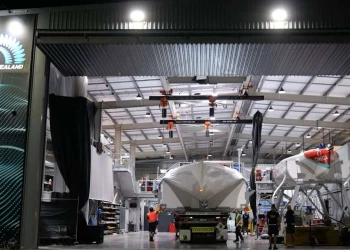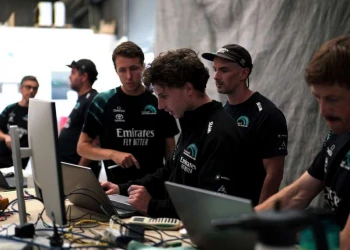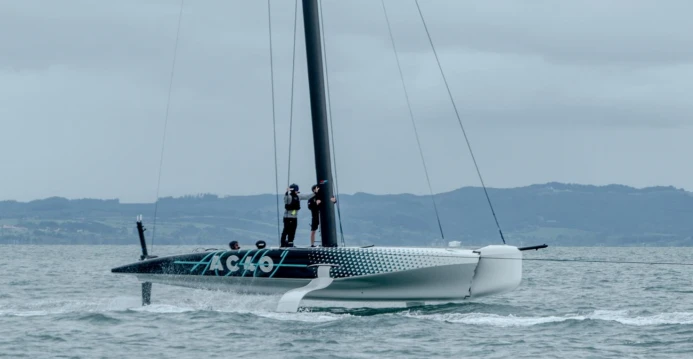
ETNZ AC40 in testing configuration suffers damage during sailing
ETNZ AC40 in testing configuration suffers damage during sailing
In recent weeks the Emirates Team New Zealand AC40 has been taken out of its one design configuration and testing stepped up in its development and data collection towards the design of its AC75.
The team were testing under manual flight control to the north of Waiheke Island in around 15-20 knots of windspeed and large waves. While sailing downwind at over 40 knots of boat speed, the crew onboard lost control of the ride height which caused the rudder and elevator to come out of the water. This resulted in a high-speed uncontrolled gybe and simultaneous deep nosedive followed by a capsize.
The resulting impact of the water pressure collapsed the foredeck at the bow of the AC40. Significantly the watertight bulkhead aft of where the damage occurred maintained its structural integrity, successfully serving the purpose of controlling water ingress so the boat could be righted and towed back to base.
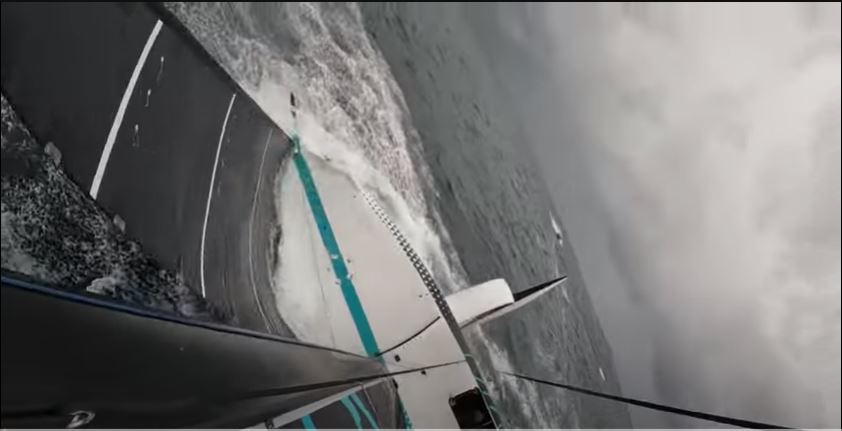
Within moments of the incident, the team on the water and design and build team back at the base were well into a program to assess the damage and repair timeline but also importantly understand the precise loads on the structures in the incident and lessons that can be learned and implemented going forward.
Emirates Team New Zealand CEO Grant Dalton said, “It appears that when the boat nose-dived, which was the best we have done, the high water pressure and side load collapsed the forward section of the deck causing the resulting bow damage. The designers are analysing the load cases of the incident and although it might be too soon to tell, it is likely that we will have some retrofit structure necessary to our boat and throughout the AC40’s fleet. But we will understand this further in the coming days.
The AC40 was towed back to base on its foils after the incident and is back in the shed being assessed for the repair job ahead.
